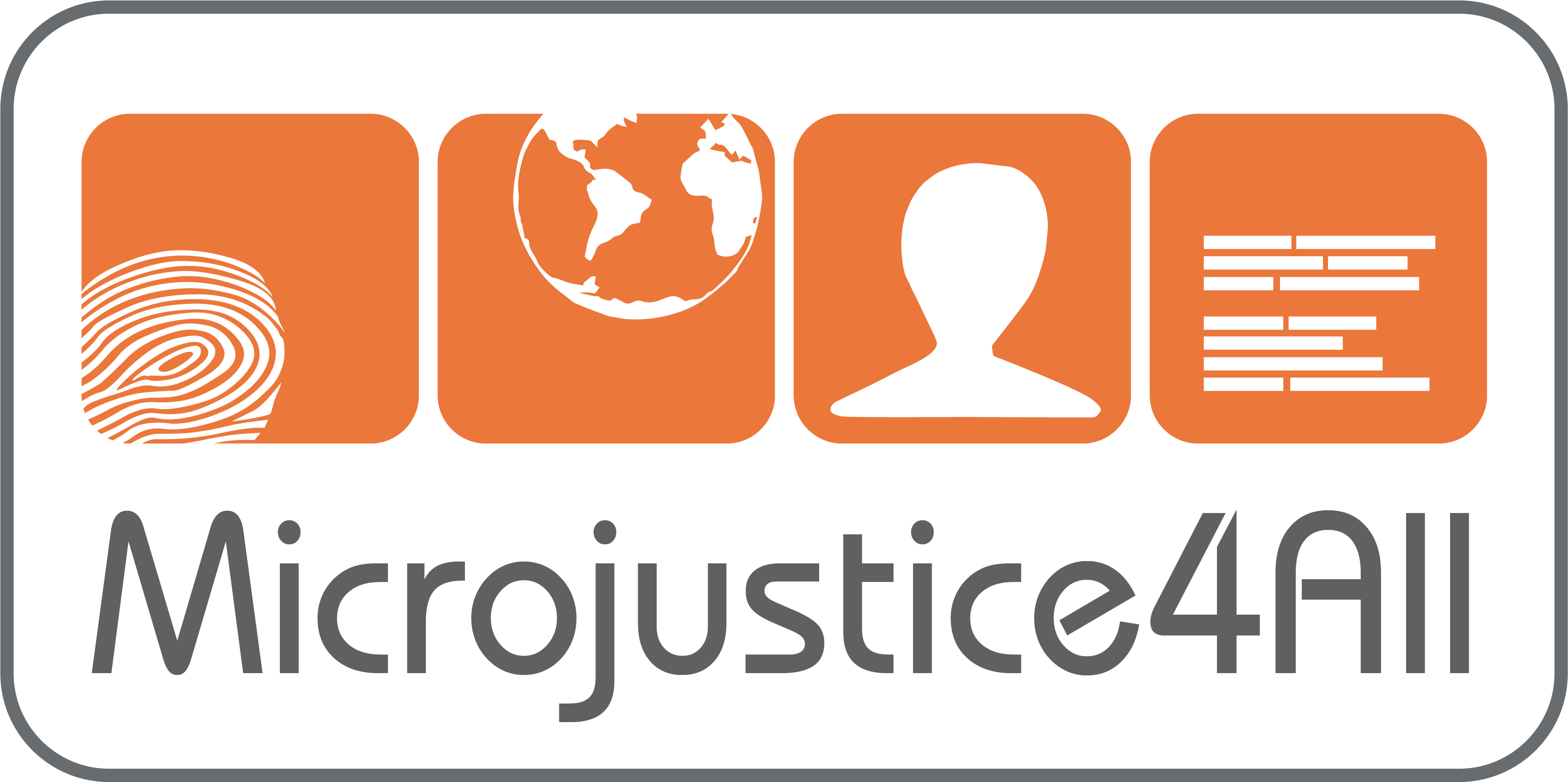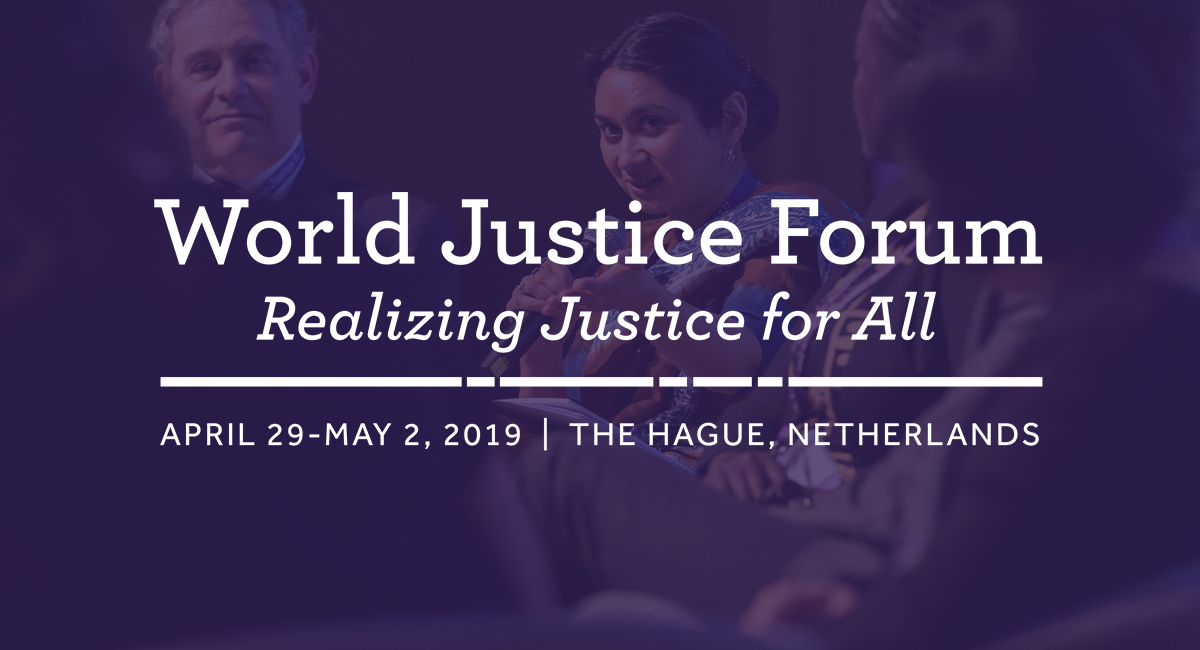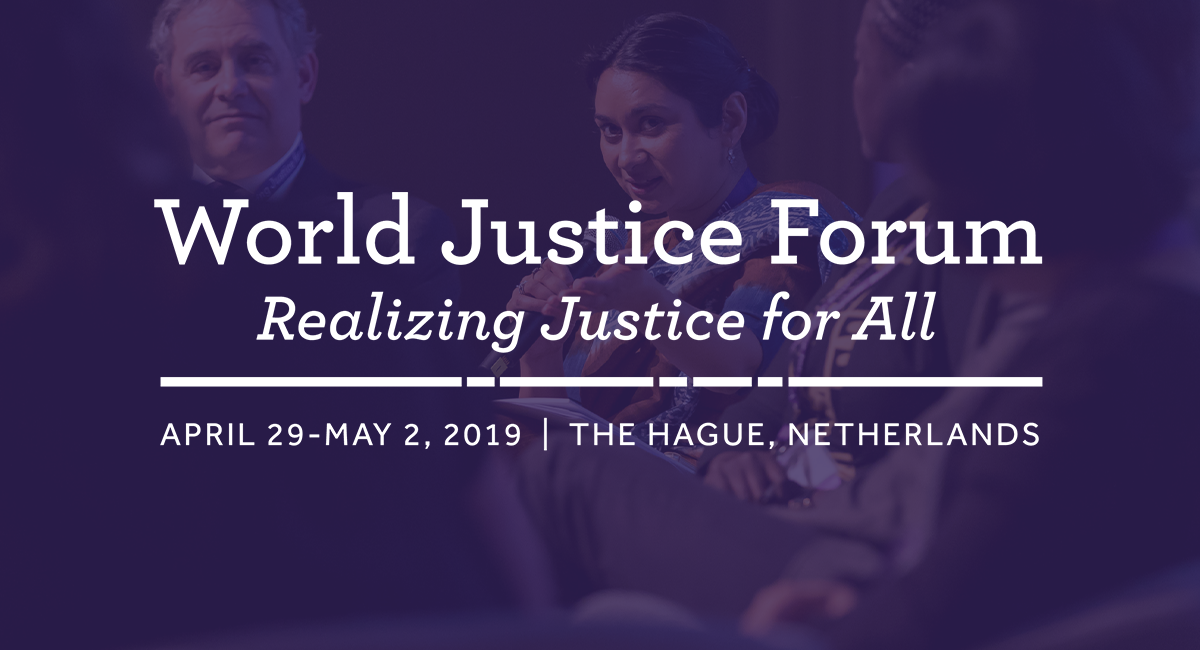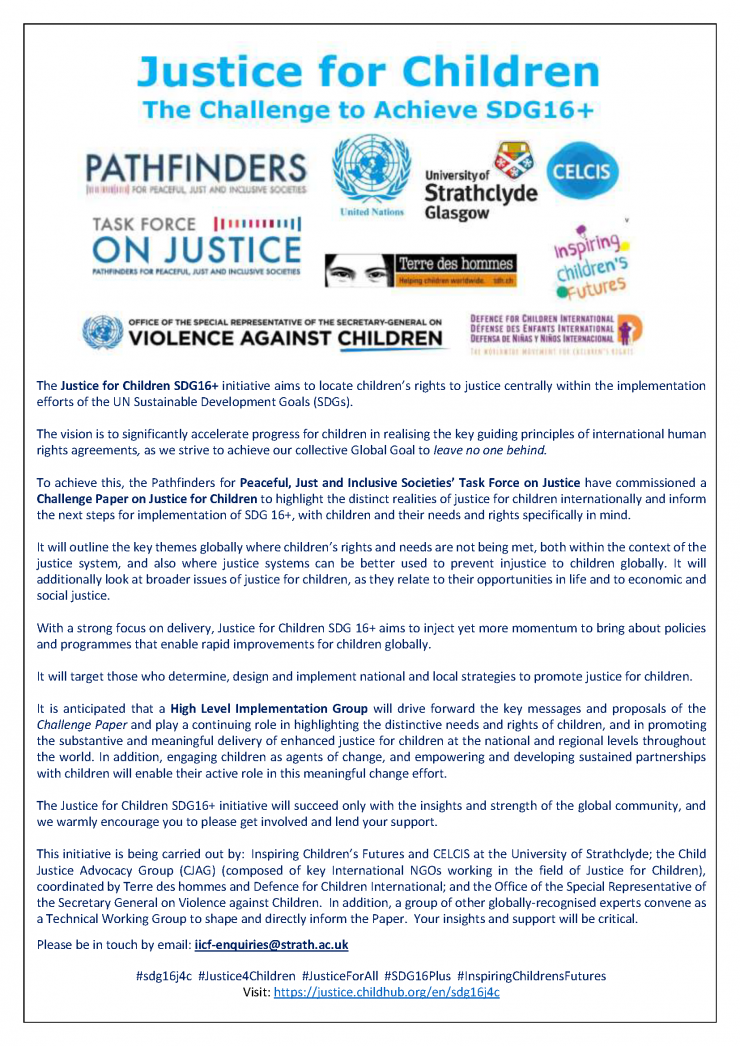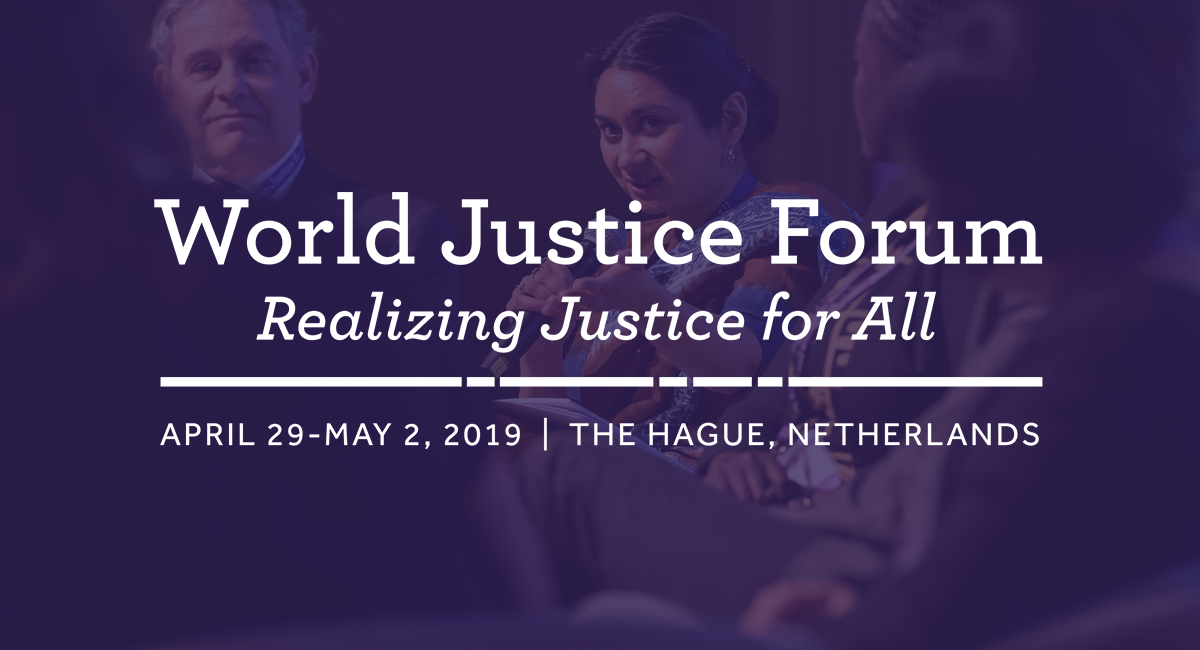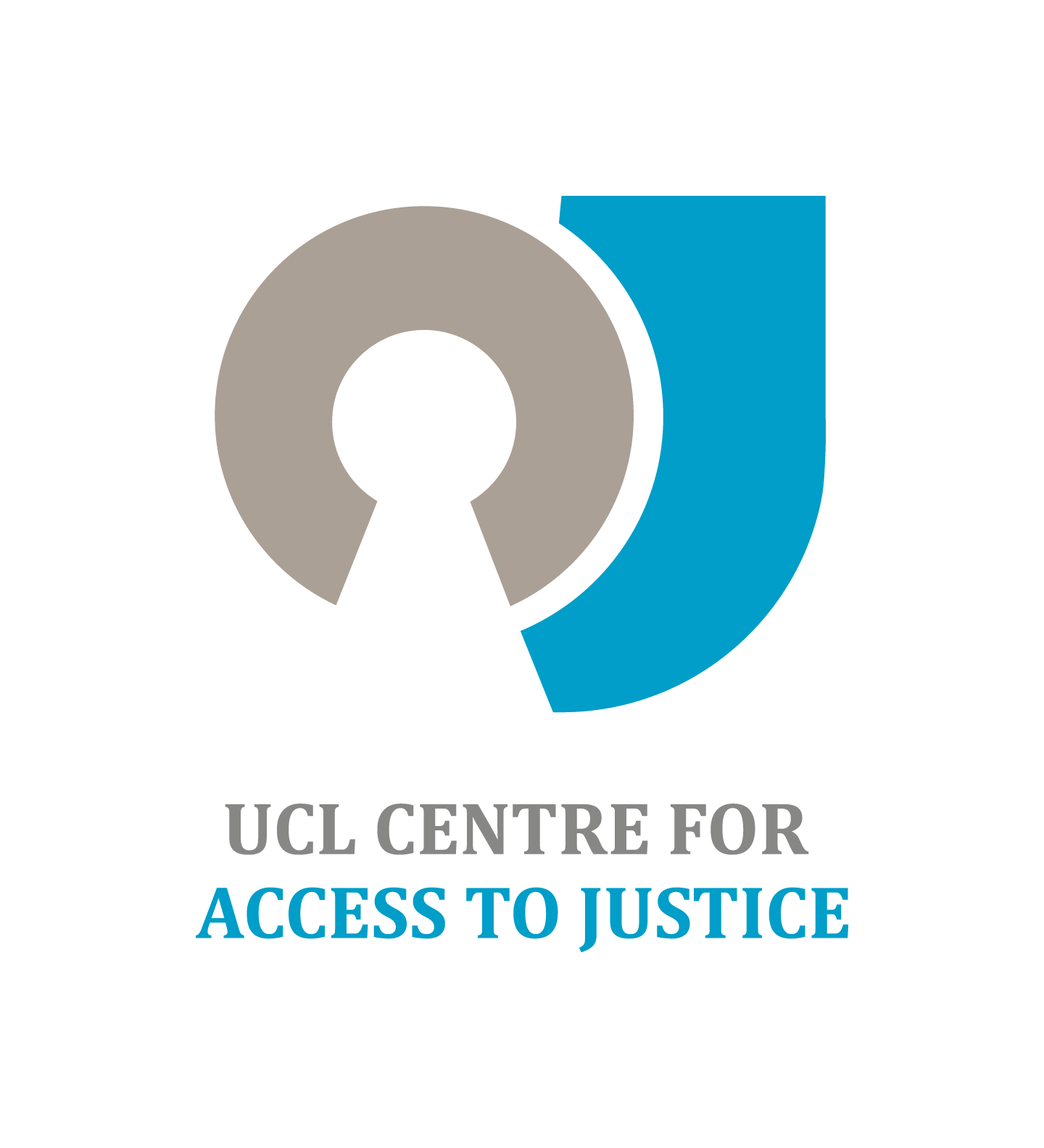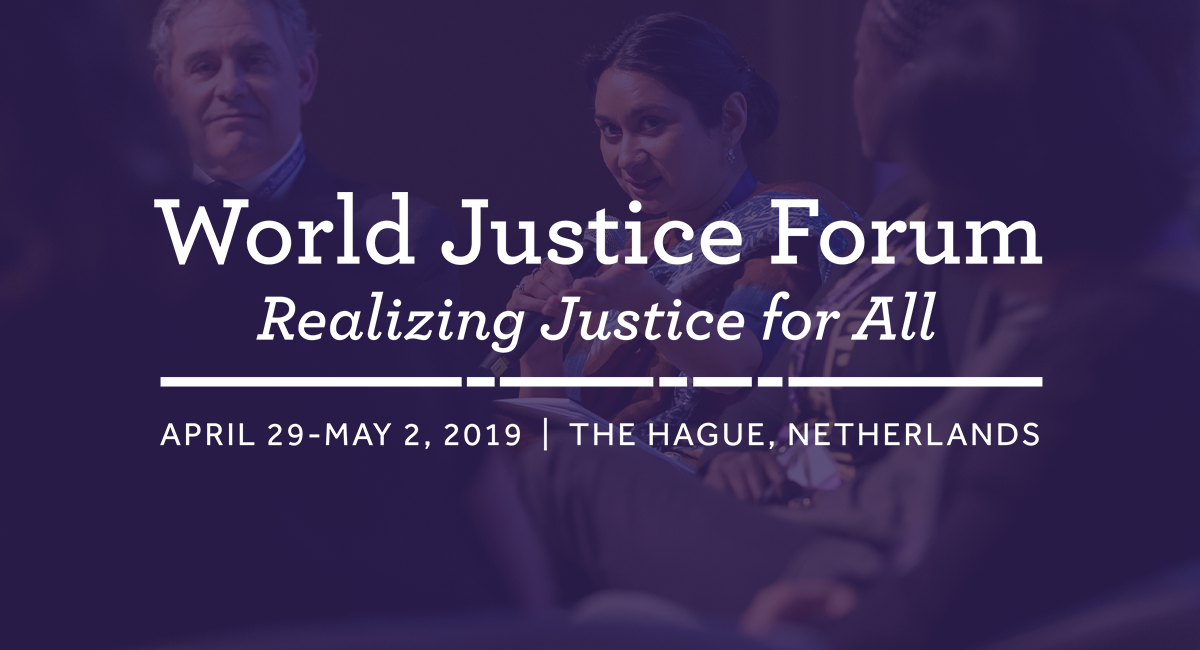This session will present the Microjustice4All legal empowerment and legal inclusion mapping methods as country specific tools to support the implementation of SDG16. These tools work by identifying legally excluded groups, their level of vulnerability, and the legal problems that must be solved to promote empowerment. Participants will be instructed on how to start a legal inclusion mapping project or a sustainable legal empowerment program to help map and meet the basic daily legal needs of marginalized groups in their own countries.
Read the full summary for this working session.
Additional Resources:
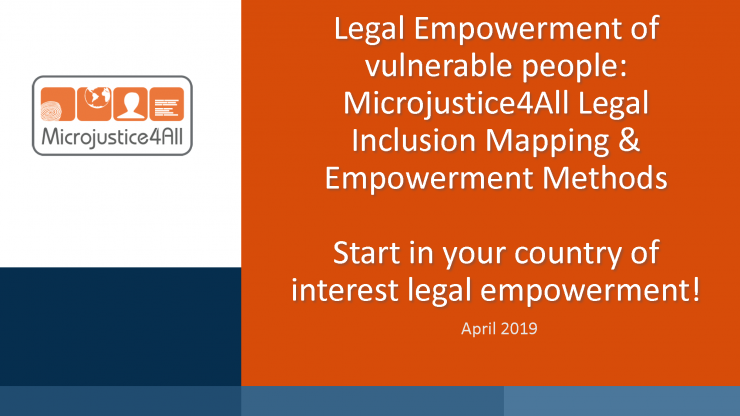
Legal Empowerment of Vulnerable People: Microjustice4All Legal Inclusion Mapping & Empowerment Methods

Working Sessions Summaries
